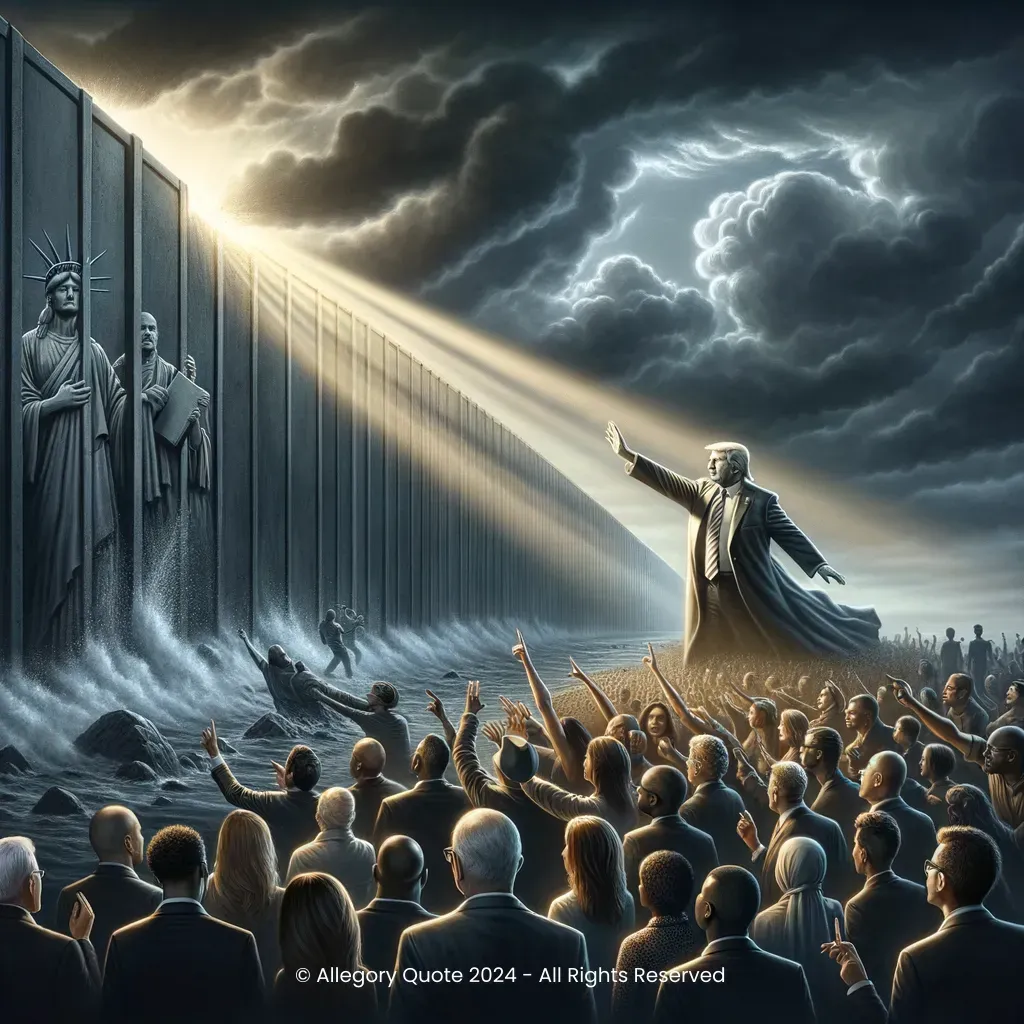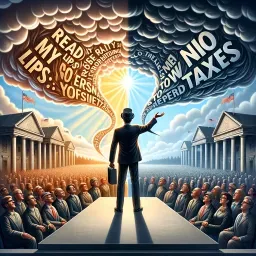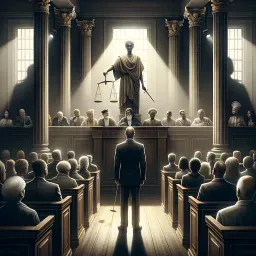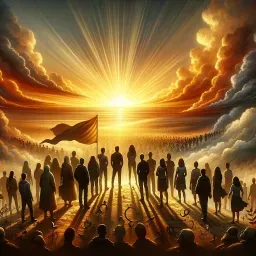Mr. Gorbachev, tear down this wall!

0
0
0
0
- Meaning
- This phrase is a direct call to action from President Ronald Reagan urging Soviet leader Mikhail Gorbachev to dismantle the Berlin Wall. The Berlin Wall was a significant symbol of the Cold War, physically and ideologically dividing East and West Berlin from 1961 to 1989. Reagan's challenge implied a demand for greater openness and freedom in Eastern Europe, signaling a strong stance against the division and oppression represented by the Wall.
- Allegory
- In the image, the imposing barrier under the dark shadow of the wall captures the oppressive nature of the Berlin Wall, symbolizing division and suppression. Ronald Reagan's illuminated figure, reaching out with determination, represents the bold leadership and courage in demanding change. The beam of light breaking through the wall on the other side symbolizes hope and the acknowledgment of change, with Gorbachev illustrating the potential for openness and reform. The diverse crowd of people reaching out towards the wall exemplifies the shared human desire for freedom, unity, and the end of separation, resonating universally with themes of liberation and hope.
- Applicability
- This phrase teaches us about the power of leadership and the significance of direct communication in advocating for change. It can be applied to our personal lives by reminding us to take bold actions and speak up against barriers and injustices, even in the face of formidable obstacles. Courageous and clear demands for positive change can often lead to significant and impactful results.
- Impact
- The impact of this phrase was significant as it captured the world's yearning for the end of the Cold War and the oppressive symbol of the Berlin Wall. It became a rallying cry for freedom and the eventual reunification of Germany. Reagan's demand is credited with putting additional political pressure on Gorbachev and contributing to the eventual fall of the wall and the liberation of Eastern Europe from Soviet control, symbolizing a major victory of democracy over communism.
- Historical Context
- This speech was delivered on June 12, 1987, at the Brandenburg Gate near the Berlin Wall. The Cold War was thawing as Gorbachev introduced reforms in the Soviet Union, and Reagan's speech aimed to pressure further democratization and the easing of restrictions in Eastern Europe. The historical implications were profound as the Berlin Wall eventually fell in November 1989, symbolizing the end of the Cold War.
- Criticisms
- While the demand was powerful, it also faced criticism from those who believed it was overly simplistic or provocative during such a tense period of the Cold War. Some critics argued that it overshadowed necessary diplomatic subtleties, potentially risking heightened tensions. Additionally, there is debate about how much actual influence Reagan's speech had on the eventual fall of the Berlin Wall, as many forces and internal pressures within East Germany and the Soviet Union played crucial roles.
- Variations
- There aren't many well-known variations of this quote, but its interpretation and symbolism have been embraced globally. In different cultures, the phrase might be regarded as part of the broader theme of liberation from oppressive regimes or calls for freedom and unity.
-

Read my lips: no new taxes.
-

We must adjust to changing times and still hold to unchanging principles.
-

Yes we can.
-

The buck stops here.
-

I did not have sexual relations with that woman.
-

Our long national nightmare is over.
-

America is back.
-

Yesterday is not ours to recover, but tomorrow is ours to win or lose.
-

Just Do It.
No Comments